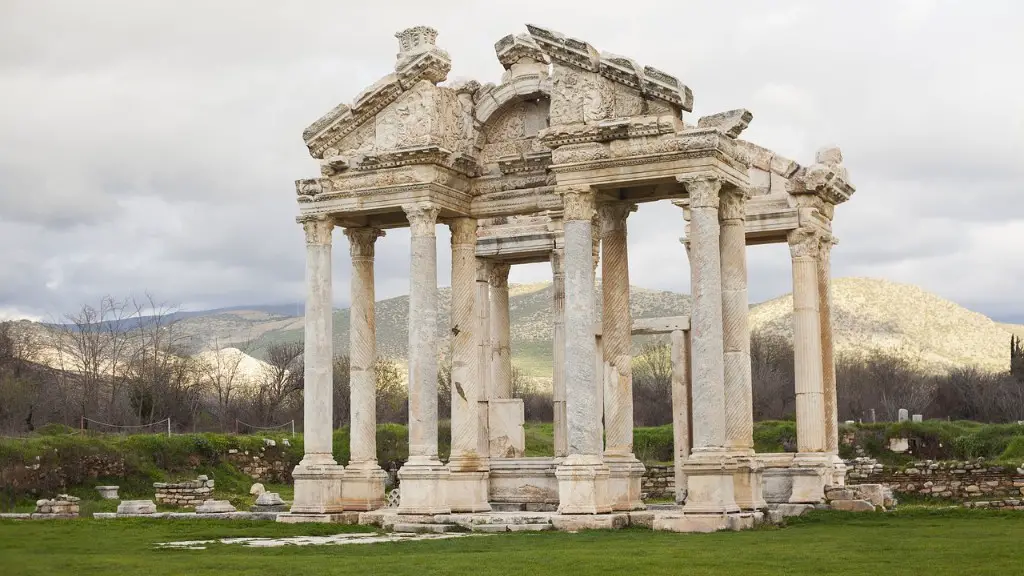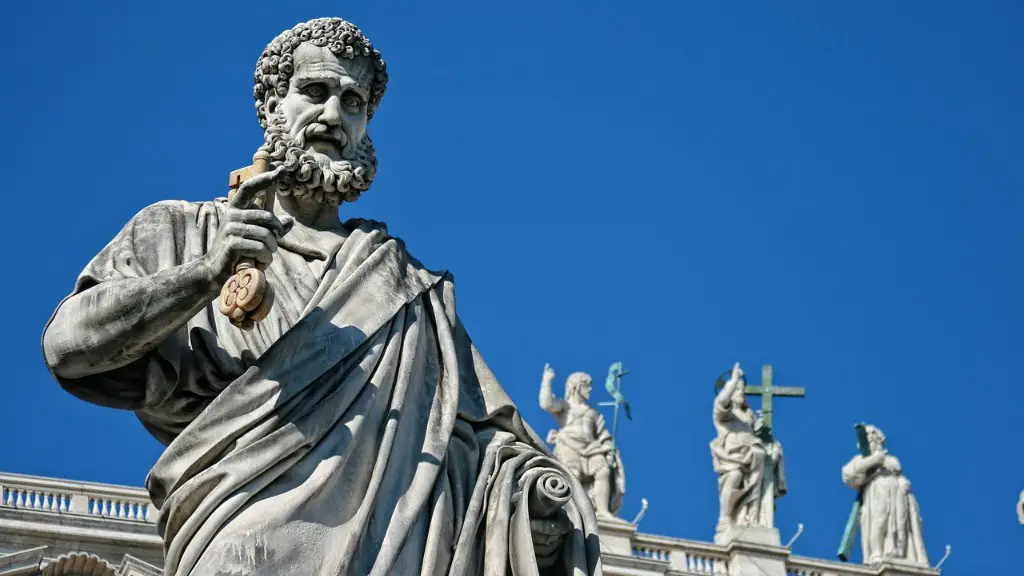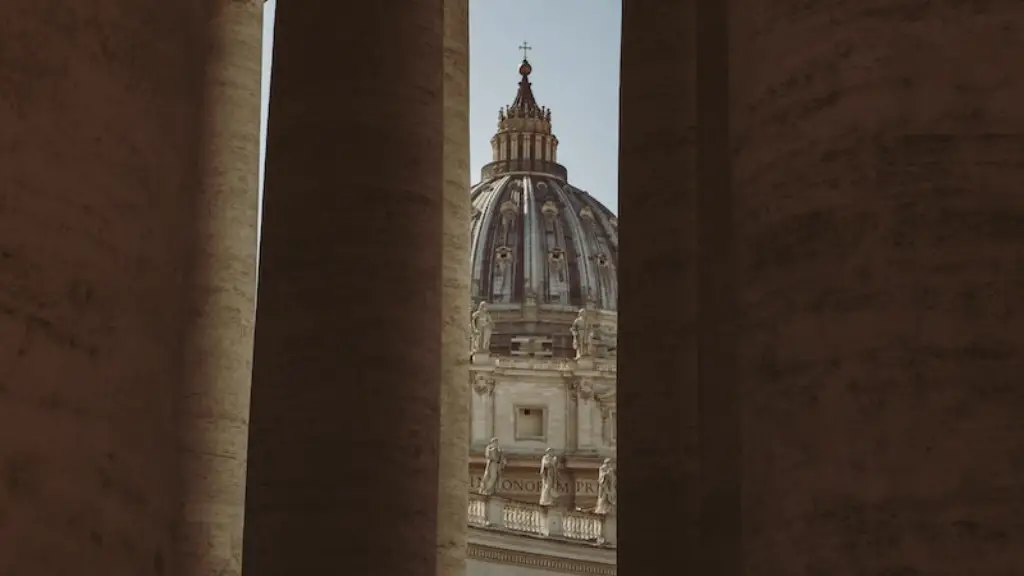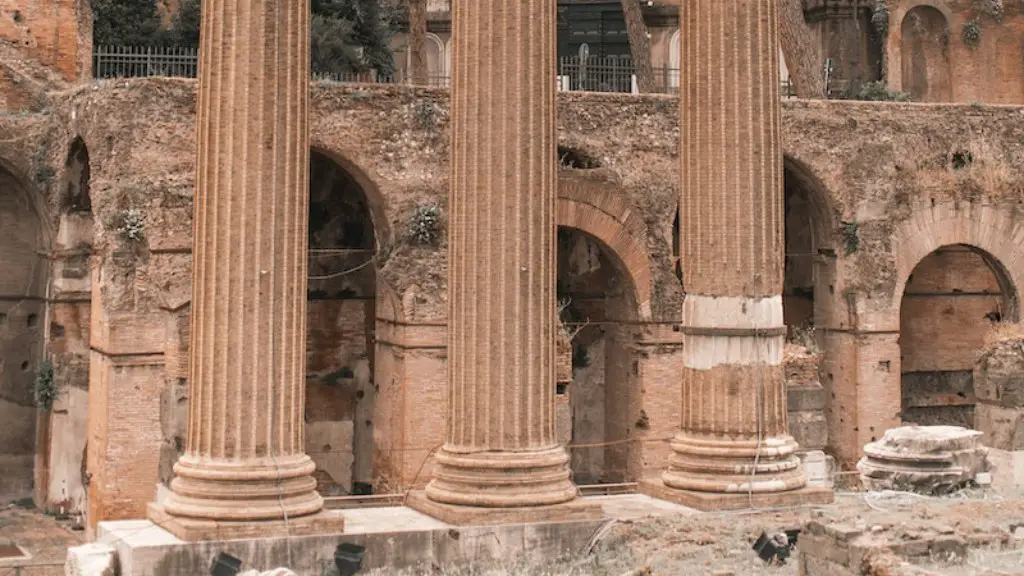Although the ancient Roman Empire was a monarchy, it integrated several social programs during its reign. Some of the most popularly known social programs include food distribution, free public housing, free public entertainment, and a form of welfare provision. In this article, we will take an in-depth look at these social programs as well as analyze their impact on the Roman Empire.
Food Distribution: Ancient Roman society was dependent on food. Agricultural products were the mainstay of the Roman diet and so food production was a key factor in determining the social, political and economic state of the Roman Empire. To maintain the food supply, the Roman government organized a public distribution system for grains, oil, and wine. The needy could receive these goods for free as long as they met certain eligibility requirements. The main beneficiaries of the distribution system were the urban poor, as well as the citizens of other cities within the Roman Empire.
Free Public Housing: Although the concept of public housing was not formal in Ancient Rome, the government did provide shelter for destitute individuals and the homeless. For example, the emperor Trajan constructed at least fifteen public insulae, large apartment blocks, that contained 2-5 story buildings providing homes for the poor. In addition, emperors often provided emergency shelters such as huts at the edge of town or near the Forum Romanum.
Free Public Entertainment: Roman emperors often provided free public entertainment as a way to distract the public from any political or military concerns. This could include plays, chariot races, theatrical performances, and gladiatorial games in which prisoners were pitted against each other in battles, usually to the death. Although the entertainment was free, the emperors were typically hoping to gain the favor of those attending and to make a name for themselves.
Welfare Provision: Ancient Rome was one of the first societies to implement a welfare system. Although it was not as comprehensive as modern welfare systems, it provided a basic level of assistance to the poor. This included subsidies for adequate food supplies as well as monetary assistance for those who were unable to work or had suffered a misfortune. In addition, Roman philosophers argued for a minimum wage for workers and a maximum limit of wealth for those at the top.
The impact of the social programs in Ancient Rome can be seen in its long-term success as an empire. The distribution of food and public housing helped to ensure that its citizens had the basic necessities they needed to survive. The free public entertainment and welfare provision helped to keep discontent among the lower classes at bay and showed that the government was invested in its people. This was instrumental in maintaining a sense of loyalty and respect for the emperor and the state.
Economic Impact
The social programs in Ancient Rome had a deep economic impact on its society. First, the food distribution program provided a steady supply of food, which was vital in keeping agricultural prices under control. This allowed a more stable economic health of the Roman Empire, which was mostly dependent on agricultural productivity. In addition, the free public entertainment, such as the chariot races, provided an economic stimulus to cities. This was due to an influx of people to the cities and a boost of tourism-based businesses.
The welfare provision also had a significant impact on the economy, since it allowed those in need to access basic services, such as healthcare. This helped to promote a sense of social equality and reduce poverty. Moreover, the system reduced crime, since those in need could access support without resorting to illegal activities. Lastly, the public housing projects provided housing for the most vulnerable members of society, allowing them to focus their energies on productive activities and move out of poverty.
Political Impact
The social programs in Ancient Rome had a wide-reaching political impact. For instance, the public entertainment provided by the emperor helped to build loyalty and a strong connection between him and the people. This increased the respect for the emperor as a leader, as well as the state itself. In addition, the presence of welfare provision and public housing sent the message that the government cared about its citizens and was taking necessary steps to ensure their well-being. This helped to maintain stability and cohesiveness within the empire.
Moreover, the fostering of social equality through welfare provision and public housing was instrumental in building a sense of solidarity and identity within the Roman Empire. This promoted the notion of a unified nation-state, which was seen as a key element of stability and longevity. Furthermore, the food distribution program was instrumental in keeping the population healthy, which was also a critical factor in the success and longevity of the Roman Empire.
Social Impact
The social programs in Ancient Rome had a deep social impact on its citizens. One of the most significant aspects was that it allowed the poorest of citizens to access basic necessities such as food, shelter, and health care. This fostered a sense of social equality, since those in need were able to access these services without prejudice or discrimination.
In addition, the public entertainment provided by the emperor allowed citizens to engage in cultural activities such as plays and gladiatorial games. This promoted social interaction, as well as a sense of community and belonging. Lastly, the public housing projects provided shelter for those who were in need, which was essential in ensuring physical security and emotional wellbeing.
Conclusion
In conclusion, the social programs in Ancient Rome were an integral part of its success and longevity as an empire. From food distribution to free public housing, and public entertainment to a form of welfare provision, these programs provided a sense of security and comfort to the citizens, thus strengthening the bond between the emperor and his people. Moreover, these programs had a deep economic, political, and social impact, thus establishing a foundation for a successful and unified society.



